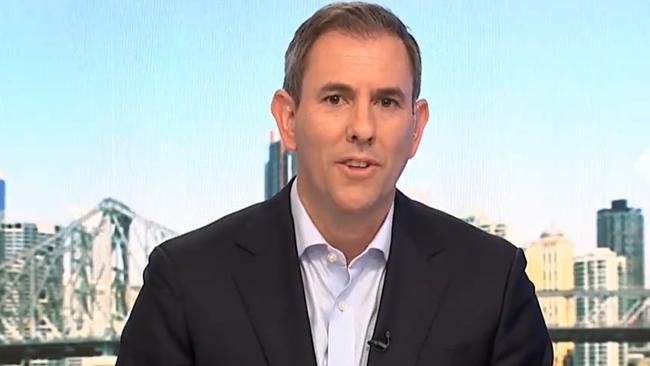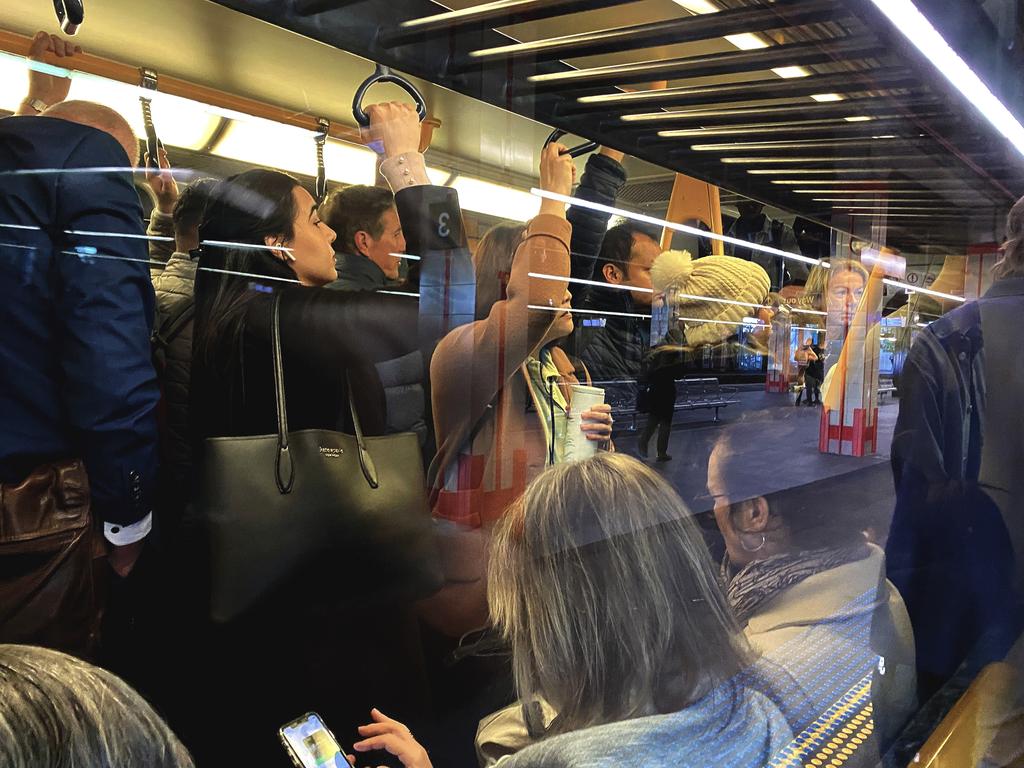Jim Chalmers rejects bid to use budget to limit pay rises
Jim Chalmers has called for a wage increase for low-paid workers, dismissing employer claims that budget measures should reduce the size of an imminent wage rise.

Jim Chalmers has rejected employer claims that energy bill relief and rental assistance in the federal budget should reduce the size of an imminent wage rise for 2.9 million low-paid workers, calling for a decent pay increase in line or above the inflation rate
Reaffirming the government’s position that Labor did not want to see the pay packets of minimum wage and award-reliant workers go backwards, Dr Chalmers said the cost of living measures in the budget were designed to “supplement decent wages, not supplant them”.
The Australian Industry Group says the budget’s $300 energy bill rebate and increased commonwealth rental assistance assists low-paid workers and justifies limiting the pay rise to 2.8 per cent, just over half the ACTU’s 5 per cent claim.
ACTU president Michele O’Neil said the employer push was an insult to low-paid workers, and accused business groups of trying to pocket the cost-of-living relief themselves.
Asked on the ABC’s Insiders program if he would like to see this year’s minimum wage increase higher than inflation, Dr Chalmers said: “Our view is consistent with our submission. We don’t want to see people go backwards.
“We know that people are under cost of living pressure up and down the income scale but particularly people on lower and fixed incomes. We don’t want to see them go backwards. The government is doing its bit, providing substantial but responsible cost of living help and we want to see a decent pay increase on top of that.”
According to treasury forecasts in the budget papers, inflation will be 3.5 per cent at July 1 before falling to 2.75 per cent next financial year. It predicts wages growth will peak at 4 per cent before falling to 3.25 per cent for the next two financial years.
If the commission was to split the difference between the competing union and employer group claims, as it has done in the past, low-paid workers would get a 3.9 per cent rise, which would be above inflation and in line with the government’s position that employees not go backwards.
In its post-budget submission to the commission, the ACTU said beyond knowing the $300 cash value of the energy bill rebate, it was difficult to predict what the ultimate effect would be on households, due to default offer prices not yet being finalised and varying household circumstances.
The ACTU highlighted that businesses would, subject to the passage of legislation, benefit from the one year extension of the $20,000 instant asset write off program.
Urging the commission to reject the employer objections to its pay claim, the ACTU said: “The cost of living crisis has continued to measurably affect households, including with respect to essential items such as housing.
“Real wages are growing, albeit slightly slower than forecast, continuing pressure on households but consistent with input cost pressures abating and inflation returning to target in a reasonable time frame.
“Inflation has moderated more quickly than earlier forecasts had predicted.”








To join the conversation, please log in. Don't have an account? Register
Join the conversation, you are commenting as Logout